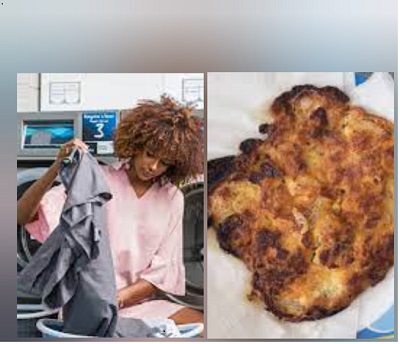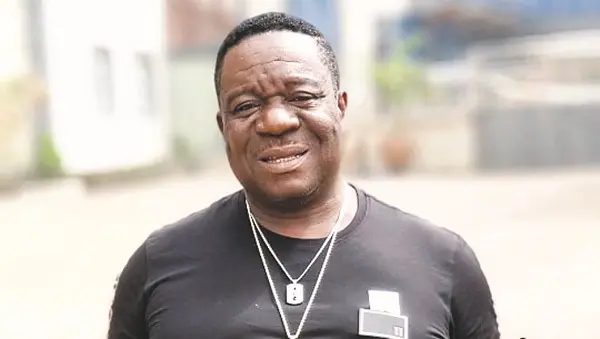Need for a handshake between U.S. Universities & Embassy/Consulate in Nigeria
In 1993, before the present location where the U.S. Consulate is housed was renamed Walter Carrington Crescent, it was my regular route to Goethe Institut, the German Language School, which was then at No.10 Ahmed Onibudo Street, Victoria Island.
Back then, the place called Walter Carrington Crescent today, was a quiet path and like me, you could pass several times without as much as a glance at the U.S. Embassy, for that is what it was then.
Today, access to that quiet stretch is denied to the public, the lawn beside the ocean that was our access route into the crescent is occupied by a hall carefully put together, to accommodate the multitude of applicants seeking visa approval to the U.S.
On October 3rd, 2023, I went for visa interview on F1 status. Earlier in February, I secured admission to an American university for a 2-year programme in International Relations and Diplomacy.
My target initially was Leiden University, where I had taken a few courses through the Coursera online learning platform, but the American university came with a lot of warmth and persuasive appeal, and their course outline is impressive, I decided to go for it.
I knew it would be impossible for me to abandon my family and engineering practice and commitments to customers suddenly for such a long stretch, so I asked the school if I could take my fall semester courses online and they agreed.
Classes started in late August, and it took about a week for me to adjust to the pace of what was to come. The pace was frenetic, but it was a great learning experience.
By the time I went for the visa interview with my family I was already hooked on the programme. I made meticulous preparation for the interview, gathered every scrap of paper they may request for.
It was a waste of time, the interview lasted less than five minutes; the Consular officer was casual and dismissive; she posed questions that were scarcely connected to my reason for applying, like: “How much do you think you would earn when you graduate?”
I replied that my reason for applying is strictly in pursuit of self-fulfillment. The verdict was out in a flash, you could tell they had it ready before the interview began, visa application denied; “candidate did not show enough home ties.”
My understanding then was, perhaps because I applied with my family, the embassy officials thought they planned to go with me to the U.S. But what is wrong with that if all they want is visit and support me during the programme? I reported my experience to the school. They encouraged me to reapply alone, and my family agreed.
My second visa interview was livelier and engaging but the verdict still was “candidate did not show enough home ties.”
I am coming to the U.S. to study for 18 months, leaving behind two promising teenagers, a 14-year-old girl who passed university entrance exam at 13 and a 17-year-old second year student in the university, and their dotting mother, and you say I did not show enough home ties?
I sent a mail to the U.S. embassy recently requesting to understand what they meant by “candidate did not show enough home ties” and how it applied in my situation, they came back with a “diplomatic” statement: “Visa approval or denial is at sole discretion of the U.S. Embassy/Consulate. Each person’s situation is different, and the decision is made based on several factors, including applicant’s ties to their country, financial resources, and travel history.”
They went further: “If you are denied visa under Section 214(b), you can reapply for a visa anytime. However, you will need to show additional convincing evidence of your ties to your home country.”
The question is: What do I need to do to show “additional home ties?” I have a young family in Nigeria, businesses, houses, unprotected parcels of land, I worked without pay for a major NGO (Enough is Enough) in Nigeria to register more voters in Oyo State, before that intervention, I employed and paid people to conduct the online voter’s registration exercise, I have fixed roads, street lights in my community in Ibadan for which I was given chieftaincy title by the Baale of Aba Pannu in January 2022.
As a pioneer student at the School of Politics Policy and Governance (SPPG), I led my group members to produce skits encouraging Nigerians to shun political apathy in the build-up to the 2023 general elections and embrace political participation.
We organised a media launch in April last year and received an award for our effort from the SPPG.
The interview sessions at the U.S. Embassy/Consulate are not designed to separate one Nigerian from another based on genuine intentions. So, they craft the reason for their refusal in ambiguous open-ended statements that allows them to turn back as many Nigerians as possible.
I agree that the decision to grant or refuse visa lies solely with the embassy/consulate, but because it is a transaction, that involves money and time and risk of travelling for those involved, the least the U.S. Embassy can do is be more transparent with Nigerians about the rules of engagement.
The U.K government and others are clear about their requirements and when they upgraded those requirements recently, it was published ahead of time, so, applicants knew what to expect.
Nigerians have been emigrating abroad in large numbers since the present ruling party came into power in 2015. As the economic situation worsened due to poor governance, so the number of young Nigerians leaving the country increased.
My measured guess is that due to the large number of applications, the U.S. Embassy is applying a strict quota system on visa approval for Nigerians.
On the two occasions I was at the Lagos Consulate, I witnessed more than 500 applicants, the crowd was enough to fill a medium church hall, in such situation, it is common sense that the hurdle for approval will be higher.
Also, if the U.S. Embassy/Consulate chooses to maintain its current ambiguous stand, it can at least send mails to Nigerians who do not meet the “criteria” not to bother to show up for interview.
It will save time, resources and may save the lives of those who have to travel over long distances to reach the venue of the interview. In my case, I could have gained an extra week to deliver my school assignments.
I paid my school fees in full after a meeting with the school. They insisted that the programme was not online and identified internship as a major hurdle. I decided to source internship position in another continent.
Now there is the new hurdle about choosing courses for Spring, most of the selected courses for my specialisation are in-person. The school is still maintaining its non-interference stand and offered me a professional MA programme with lesser units. I politely declined because their late offer will rob me of the opportunity of fulfilling my dream.
I have scrapped together a few relevant web-based courses that should carry me through Spring. Yet the uncertainty remains.
I don’t know if the non-interference stand of the university is a general policy among U.S universities, if that is the case, like I pointed out to the school in my correspondence, U.S. universities owe prospecting Nigerian students the moral obligation of stating the likely difficulty they may experience with the U.S Embassy/Consulate.
In my own case, the matter of the difficulty was never mentioned until after the first visa denial. Now I hear and I have seen with my eyes that it is almost a sweeping decision. The Embassy has the prerogative to decide who should be issued or denied visa; U.S. universities have the prerogative to decide not to get involved, but the universities should at least warn Nigerian students about what they are likely to encounter, if they decide to take the risk or they say they have no problem about visa approval, that absolves the schools.
There is need for a handshake between U.S. universities and the U.S./Consulate Embassy in Nigeria. Too many well-intentioned, prospecting Nigerian international students are being casually separated from their hard-earned money through this failed school bid. The minimum a student would have paid to get to the visa interview stage is $1200.
Even if they can afford it, there are lots of people around them who could use that money. Also, there are many Nigerians, like this writer who are thirsty for knowledge in their chosen field and nurse the dream of debating ideas with the leading specialists, such persons will desire to study in the U.S.
After all, it is not for nothing there are 50 American universities among the world’s top 100 universities. The U.S. universities can conduct due diligence on each prospecting student using defined criteria, make recommendations to the Embassy, or what is the value of the admission letter from U.S. universities if it will only separate prospecting Nigerian students from their money and leave them with bitter memories?
As for me, I will finish strong on my present programme, study in some of the best universities in Europe, and return to the U.S. to study in their Institute of World Politics, and then Harvard.
My thirst for knowledge and dream of contributing to writing in this field is stronger than the present hurdles. Not everyone has the stamina or resources to burn, which is the reason for this article.
.Gold is a student and social change agent.







